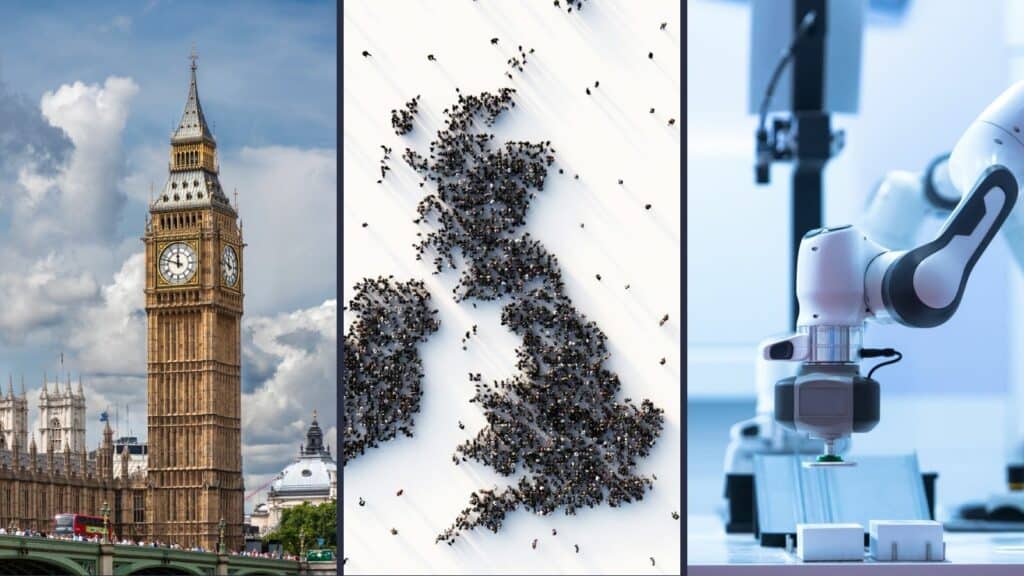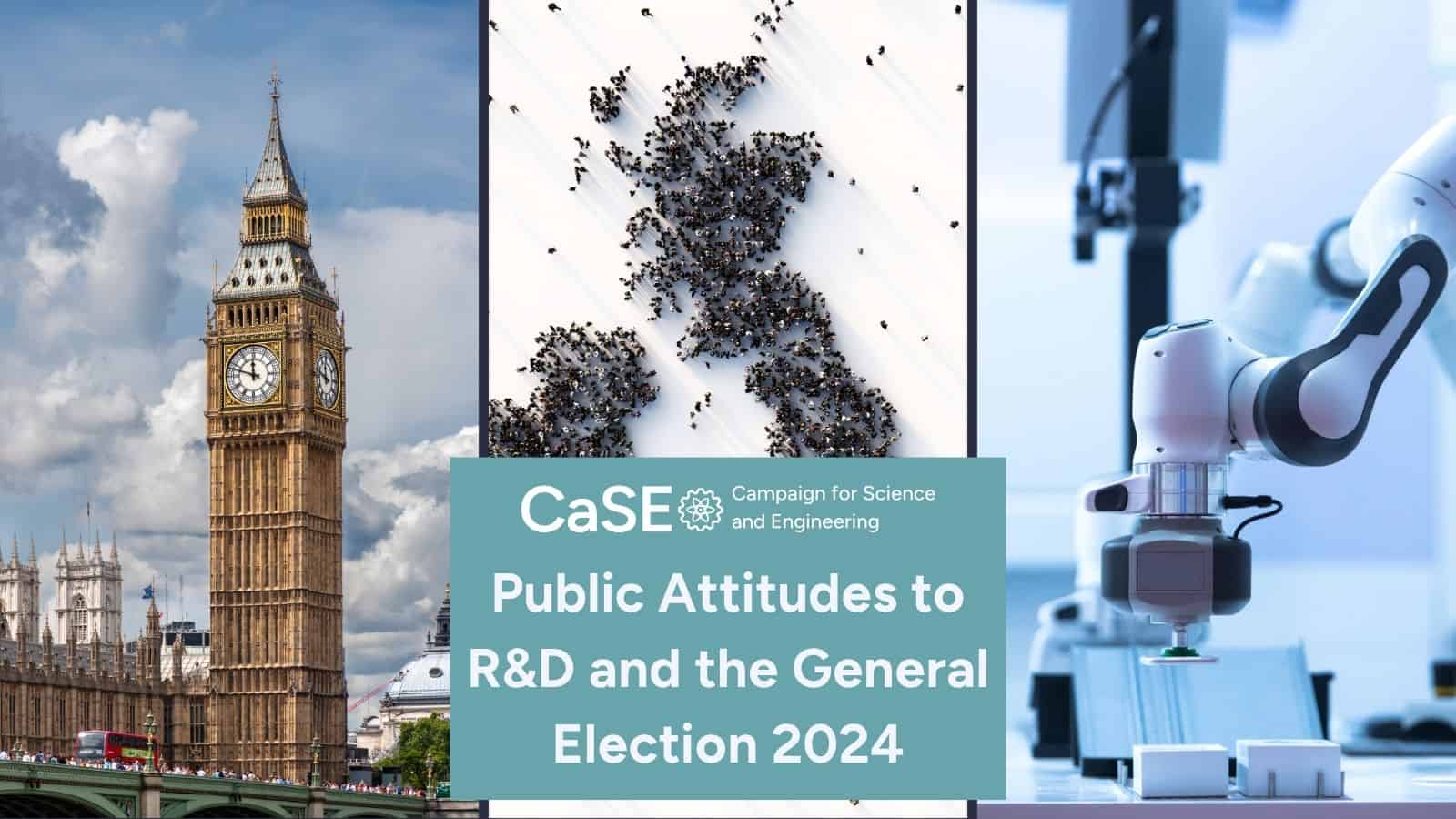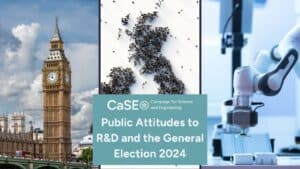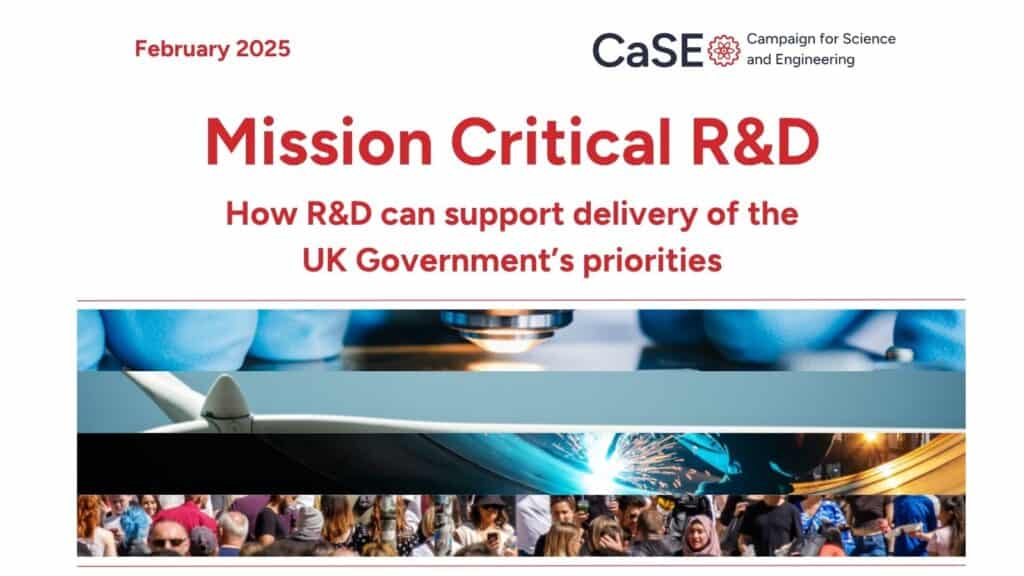Today we are publishing new data from our latest poll exploring public attitudes towards research & development (R&D), which includes a particular focus on the relationship between R&D and economic growth. In March and April 2024 we surveyed 2,011 UK adults, asking questions that examined people’s understanding of economic growth, the connection between R&D and growth, along with jobs in R&D, and trust in scientists. We also included questions exploring respondents’ attitudes to local issues relating to R&D, several of which we will be repeating throughout the year to build up a picture of public attitudes at a constituency level in the run up to the General Election. All our polling was carried out by research agency Public First.
We found that:
The public feel confident in their understanding of economic growth and naturally link this to R&D investment
The public want to see long-lasting, stable jobs, and jobs for people at the start of their careers – both of which they associate with R&D jobs
There is broad support for local R&D facilities, regardless of the organisation setting them up, and most people would like their MP to actively campaign for them to be in their constituency
A majority support their MP taking a range of R&D related actions and agreed that they would like to vote for someone who will support R&D in the UK
Scientists are very well trusted to talk about the benefits, results and funding of R&D
CaSE will run a further two polls in the run up to the General Election to help us engage with the public and politicians, along with a set of focus groups to explore these topics in more depth.
Economic Growth
The public feel confident in their understanding of economic growth and naturally link this to R&D investment.
The term ‘economic growth’ is well understood with 97% of respondents reporting to have heard the term and more than 75% able to explain it.
R&D related actions are seen as a route to increasing economic growth. Prior to any mention of R&D in the poll, many respondents selected actions referring directly or indirectly to investing in R&D as vehicles for increasing economic growth. This included 31% of respondents saying that ‘putting money into research and development’ would lead to more economic growth, putting it into the top 10 actions chosen.
Investing in R&D is understood to be an effective strategy to grow the economy. Some 65% of respondents felt it was clear how investing in R&D would grow the economy, compared with 23% who said it was not clear. The majority of respondents (ranging from 50%-64%) thought investing in R&D was a better strategy to grow the economy than other typical near-term policy interventions, such as minimum wage increases or building hospitals.
Jobs
When arguing for investing in R&D, campaigns focusing on long-lasting, stable job opportunities for people at the start of their careers will connect well with the public.
We asked respondents what types of jobs they felt the UK government should prioritise creating and compared this to the types of jobs that they associate with R&D. There are many areas of overlap between these priority characteristics and the public’s perceptions of R&D jobs, including that investing in R&D generates jobs for young people at the start of their careers and jobs that provide a long-lasting stable career. However, just 28% felt R&D jobs would be available in areas with high unemployment, which was highest on the priority list of jobs the UK government should be creating.
Local R&D
There is broad support among the public for local R&D facilities, regardless of the organisation setting them up, and most people would like their MP to actively campaign for them to be in their constituency.
We examined attitudes towards different organisations setting up local R&D facilities, and found widespread support, with approximately 80% in favour, regardless of whether these are led by businesses, charities or the NHS. When framed in the context of action by their local MP, a majority wanted their MP to actively campaign for a new research centre to be set up in their constituency (60% of 2,011 respondents) rather than actively campaigning against it (6%).
The main advantages respondents saw for each type of organisation establishing local research facilities were boosting the local economy and providing jobs for local people. We saw a stronger connection between these top two advantages when businesses were involved in the proposal. Some 58% said this would boost the local economy, and 55% said it would provide jobs for local people when businesses were involved, whereas neither of these reasons were selected by more than 50% for the other types of organisations.
A majority also supported their MP taking a range of R&D related actions, such as campaigning for their nearest hospital to host more clinical trials (76%), and a majority agreed that they would like to vote for someone who will support R&D in the UK, regardless of respondents’ voting intention in the upcoming election.
Trust
Scientists are very well trusted to talk about the benefits, results, and funding of R&D.
We asked a series of questions about how much the public trusts scientists to talk about R&D. Scientists are among the most trusted messengers, along with NHS workers and engineers. The public sees scientists’ familiarity to the R&D subject area not as a source of bias but rather as a benefit when communicating with the public, perhaps in part due to the view that scientists will take an evidence-based and transparent approach.
Explore the data






